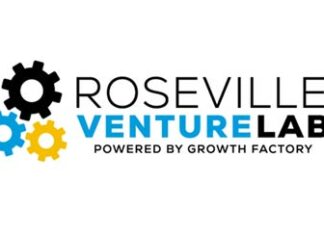Rocklin, Calif. – At the final session of the Sierra College STEM Collaborative ACTivATE nine-month professional development program on teaching applied critical thinking, Sierra College and high school instructors reported that their students are better prepared for employment because critical thinking has been explicitly incorporated into classroom instruction.
With guidance from Northwestern University’s Searle Center for Advancing Learning and Teaching, and the Sierra College STEM Collaborative, 11 instructors participated. They modified their teaching methods to include more inquiry-based learning, require deeper levels of thinking, use specific work-based examples, encourage exploration rather than giving them the process through lecture, and ask students to make predictions, generate ideas, identify evidence and reflect on results.
Applied Critical Thinking for Advanced Technological Education (ACTivATE) was designed in response to manufacturing advisory committee members who said that critical thinking is an essential skill for 21st century employees, explained Carol Pepper-Kittredge, CACT Director, Sierra College Center for Applied Competitive Technologies (CACT).
“ACTivATE is unique because teachers developed real world applied lessons to teach students how to think critically,” said Pepper-Kittredge. “In addition, the dialog between the college and high school faculty representing different disciplines enriched the experience.”
Jeanne Villeneuve, math teacher, Del Oro High School teamed up with Katie Lucero, math instructor , Sierra College, to design new curriculum. “During the lesson, students developed linear equations to calculate the height of a stack of plastic cups, in order to determine how many would fit into a plastic sleeve or box, for ordering purposes,” said Villeneuve. “They also calculated the packaging dimensions and how many boxes would fit on a truck.”
“We became explicit in identifying critical thinking and how it affects life as well as how it is used on the job,” said Villeneuve. “Critical thinking is also intrinsic in the Common Core State Standards. Teaching students to think out loud and define the problem, prepares them to meet the new standards.”
Denise Drane, Associate Director, Searle Center for Advancing Learning and Teaching, Northwestern University, helped conduct the training and provide feedback to participants. Through a National Science Foundation (NSF) grant, the Searle Center previously designed the Enhancing Critical Thinking in STEM Disciplines: A Faculty Development Model.
“I was truly impressed with the quality of the critical thinking activities that the faculty developed,” said Drane. “I was also so pleased to see how much they seemed to have enjoyed implementing the activities. In addition, they had gathered their own evidence to support using these types of activities over traditional lecturing approaches.”
Steve Gillette, Sierra College Mechatronics faculty member, reported that problem solving skills have always been a part of lab work. “As a result of the ACTivATE training, I am now much more explicit in stating that the activity requires critical thinking,” said Gillette. “I tell students up front that employers want them to think critically. When expensive automated equipment isn’t working correctly, technicians are expected to analyze the problem and find a solution. Employers pay excellent wages to Mechatronics technicians because they know how to think critically.”
According to the JD Franz Research Inc. evaluation, the ACTivATE project was successful in impacting instructors’ teaching methods. Participants reported: “I think about critical thinking more, and I learned that I have to model it. I tell students when they are doing it and why,” “… it advanced my ability to incorporate critical thinking intentionally,” and “this training has made a big difference; I’m very excited about rolling it out in all of my classes.”
To build on the success of the ACTivATE pilot project, Sierra College CACT is seeking business and education partners to take this project to the next level. For information, contact Carol Pepper-Kittredge, Sierra College at (916) 660-7801.
About Sierra College STEM Collaborative
The Sierra STEM Collaborative is funded by California Community College Chancellor’s Office, to create a pipeline of students interested in technical careers. Students can pursue Welding, Mechatronics, Engineering, Energy Technology and Drafting & Engineering Support at Sierra College. For information, contact Sierra College at (916) 660-7801.
(21+ years strong)
Welcome to the brighter side!
Get in front of local customers! 24/7 (365)























